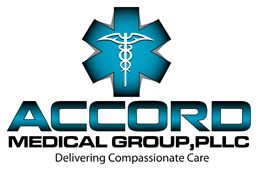Introduction
Anatomy
Causes
Iodine Deficiency
A simple endemic (colloid) goiter may be caused by a lack of iodine in the diet, but this is rare in the United States. It is more common in underdeveloped countries where people lack iodine in their diets. In people with iodine deficiency, the thyroid gland does not produce enough hormones and an overproduction of TSH occurs that causes the thyroid gland to enlarge.
Graves Disease
Graves Disease is an autoimmune disorder in which the thyroid gland produces too much T4 causing the thyroid gland to enlarge.
Hashimoto’s Disease (Chronic Lymphocytic Thyroiditis)
Hashimoto’s Disease is an autoimmune disorder that causes thyroid gland inflammation and enlargement. Irregularities in thyroid hormone production cause the pituitary gland to produce too much TSH.
Thyroid Cancer
Human chorionic gonadotropin (HCG) produced during pregnancy may cause a slightly enlarged thyroid gland.
Thyroiditis
Thyroiditis causes inflammation and enlargement of the thyroid gland. It may cause an over or underproduction of thyroid hormones. Thyroiditis may cause the thyroid gland to feel painful. The pain may increase with swallowing or pressure.
Lithium
The prescription medication lithium can create changes in thyroid function that lead to goiter.
Symptoms
Diagnosis
The most common blood tests are the Thyroid-stimulating hormone (TSH) assay and the Thyroxine (T4) measurement. The Thyroid-stimulating hormone (TSH) assay is used to determine if the thyroid gland is functioning properly. It can identify if an underactive gland is caused by a problem with the pituitary gland, hypothalamus, or a damaged thyroid gland. The Thyroxine (T4) measurement assesses thyroid functioning by testing how much T4 is in the blood. If the Thyroid-stimulating hormone (TSH) assay and the Thyroxine (T4) measurement are not normal, an Antithyroid Antibody Test is used to determine the presence of Hashimoto’s Disease.
On occasion, a doctor may order a Thyroid Ultrasound or a Thyroid Scan and Radioactive Iodine Uptake (RAIU) Test. Thyroid scans are used to identify how the thyroid gland is functioning and specify areas of overactivity or underactivity. Further, it can help determine if thyroid nodules or cancer are present. Fine-needle aspiration or a core biopsy using a larger needle may be used to obtain samples of the goiter. A biopsy may be taken if cancer is suspected. Your doctor may order additional types of imaging tests if necessary.
Treatment
Prevention
Am I at Risk
Goiter occurs four times more often in women than in men. Goiters most frequently develop in people over the age of 40, and the risk increases with age. People with iodine deficiency have an increased risk of goiter.
Complications

Copyright © - iHealthSpot Interactive - www.iHealthSpot.com
This information is intended for educational and informational purposes only. It should not be used in place of an individual consultation or examination or replace the advice of your health care professional and should not be relied upon to determine diagnosis or course of treatment.
The iHealthSpot patient education library was written collaboratively by the iHealthSpot editorial team which includes Senior Medical Authors Dr. Mary Car-Blanchard, OTD/OTR/L and Valerie K. Clark, and the following editorial advisors: Steve Meadows, MD, Ernie F. Soto, DDS, Ronald J. Glatzer, MD, Jonathan Rosenberg, MD, Christopher M. Nolte, MD, David Applebaum, MD, Jonathan M. Tarrash, MD, and Paula Soto, RN/BSN. This content complies with the HONcode standard for trustworthy health information. The library commenced development on September 1, 2005 with the latest update/addition on February 16, 2022. For information on iHealthSpot’s other services including medical website design, visit www.iHealthSpot.com.

